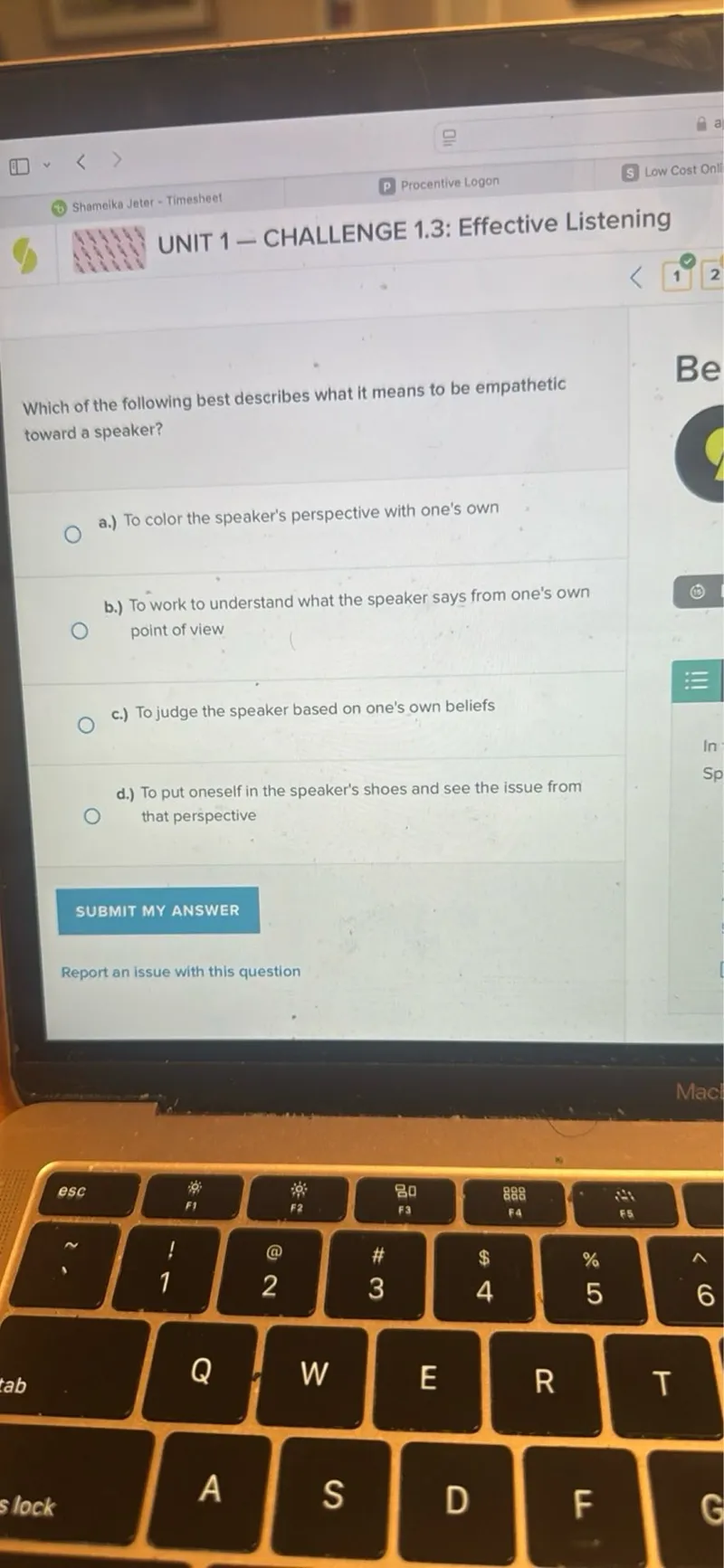Questions: UNIT 1 - CHALLENGE 1.3: Effective Listening Which of the following best describes what it means to be empathetic toward a speaker? a.) To color the speaker's perspective with one's own b.) To work to understand what the speaker says from one's own point of view c.) To judge the speaker based on one's own beliefs d.) To put oneself in the speaker's shoes and see the issue from that perspective

Transcript text: UNIT 1 - CHALLENGE 1.3: Effective Listening
Which of the following best describes what it means to be empathetic toward a speaker?
a.) To color the speaker's perspective with one's own b.) To work to understand what the speaker says from one's own point of view c.) To judge the speaker based on one's own beliefs
d.) To put oneself in the speaker's shoes and see the issue from that perspective





